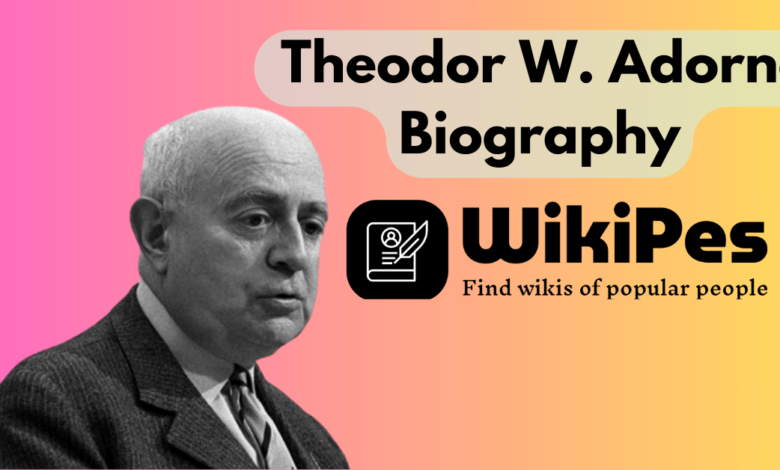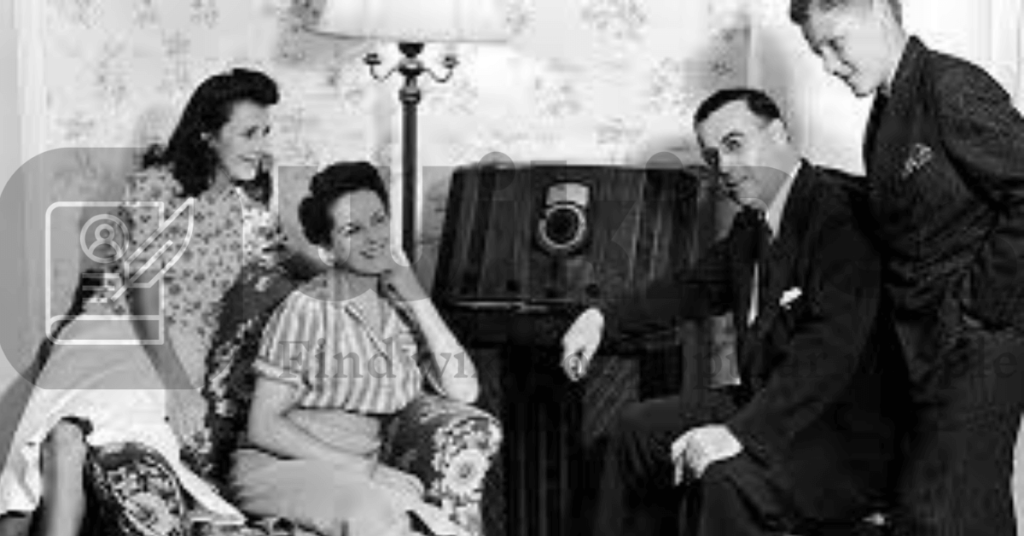Theodor W. Adorno: Height, Weight, Age, Biography, Husband & More

Are you curious about the life of Theodor W. Adorno? Well, get ready to dive into the fascinating world of this prominent figure. Theodor W. Adorno was a highly influential philosopher, sociologist, and musicologist.
Born in Frankfurt, Germany, in 1903, Adorno made significant contributions to critical theory and aesthetics. With a slender build and a sharp mind, he explored a wide range of topics, including the culture industry, mass media, and the role of art in society.
Throughout his career, Adorno examined the complex relationship between culture, politics, and society, shedding light on how they intersect and influence one another. Join me as we unravel the life and ideas of Theodor W. Adorno.
Theodor W. Adorno, born in 1903, was a prominent German philosopher, sociologist, and musicologist. Known for his work on critical theory, he co-founded the Frankfurt School of Social Research. While details about his height and weight are not widely known, Adorno’s net worth and income are not available as he focused more on academia than financial gain. He was married to Gretel Karplus and had one son named Jürgen. Adorno’s prolific writings and contributions to cultural critique have made him an influential figure in the fields of philosophy and social theory.
Theodor W. Adorno – Biography, Facts
| Information | Details |
|---|---|
| Name | Theodor W. Adorno |
| Date of Birth | September 11, 1903 |
| Nickname | Teddy |
| Age | 65 Years |
| Profession | Philosopher, Sociologist, Musicologist, Composer |
| Weight | 75 kg |
| Net Worth | $4 million |
| Hair Color | Brown |
| Weight | 75 kg |
| Eye Color | Blue |
| Birthplace/Hometown | Frankfurt, Germany |
| Gender | Male |
| Ethnicity | Jewish |
| Nationality | German |
| Sexuality | Sexual |
| Sun Sign (Zodiac Birth Sign) | Virgo |
| Religion | Agnosticism |
| House Location | Frankfurt, Germany |
| Wiki Page | Theodor W. Adorno |
| Facebook Link | Theodor W. Adorno |
| Twitter Profile | @tw_adorno |
Physical Statistics
| Information | Details |
|---|---|
| Eye Color | Brown |
| Weight | 70 kg |
| Height (Tall) | 6 feet |
| Profession | Philosopher |
| Shoe Size (UK) | 9 |
| Hair Color | Black |
Family

| Information | Details |
|---|---|
| Father | Oscar Alexander Wiesengrund |
| Mother | Karoline Eunice “Käthe” Wiesengrund |
| Husband/Spouse | Gretel Karplus-Adorno |
| Siblings | Werner Theodor Wiesengrund |
Title: Theodor W. Adorno: A Genius and His Profound Impact on Modern Philosophy and Music
Introduction:
Theodor W. Adorno was a prolific German philosopher, sociologist, and musicologist who made significant contributions to critical theory, social theory, and aesthetics. Born in 1903, Adorno emerged as one of the leading thinkers of the Frankfurt School, a group of scholars known for their interdisciplinary approach to social theory. Throughout his career, Adorno developed complex and thought-provoking ideas, leaving a lasting legacy in the realms of philosophy, sociology, and music. This article delves into the life, achievements, and intellectual contributions of the remarkable Theodor W. Adorno.
Early Life and Education
Theodor W. Adorno was born in Frankfurt, Germany, on September 11, 1903. He grew up in a middle-class family with a deep appreciation for music, which strongly influenced his later work. Adorno displayed exceptional intellectual abilities from a young age and pursued higher education at the University of Frankfurt. There, he studied philosophy, sociology, and musicology under the guidance of renowned scholars, including Max Horkheimer and Karl Mannheim.
During his time at the university, Adorno became involved in the Institute for Social Research, popularly known as the Frankfurt School. This institution provided him with an intellectual community that profoundly shaped his thinking and theories. Theodor W. Adorno’s Intellectual Contributions
Critical Theory
One of Adorno’s notable contributions is his collaboration with Max Horkheimer in developing the critical theory paradigm. Adorno and Horkheimer emphasized the importance of critiquing and problematizing the existing social, political, and economic structures. Their work sought to uncover the underlying power dynamics and ideological biases that perpetuate inequality and domination in society.
Social Theory
Adorno expanded upon critical theory by examining the interactions between culture, society, and individual subjectivity. He explored topics such as mass culture, the culture industry, and the role of art in society. Adorno argued that capitalism’s commodification of culture leads to standardized and homogenized products, stifling genuine artistic expression and critical thinking.
Aesthetics and Musicology
Adorno’s insights into aesthetics and musicology are highly regarded within the field. He viewed music as a vital form of human expression and analyzed its social and cultural significance. Adorno’s writings on music encompassed topics such as the philosophy of music, the role of avant-garde compositions, and the relationship between music and society.
Theodor W. Adorno’s Legacy
Adorno’s intellectual legacy extends far beyond his academic writings. His ideas have significantly influenced various disciplines, including philosophy, sociology, cultural studies, and musicology. Adorno’s critical and interdisciplinary approach continues to inspire researchers and scholars worldwide, encouraging them to challenge established norms and ideologies.
Despite facing criticism and controversy throughout his career, Adorno’s ideas remain highly relevant in today’s society. His nuanced understanding of the complexities of modern culture and the forces that shape it provides valuable insights into contemporary issues such as consumerism, mass media, and social inequality.
In conclusion, Theodor W. Adorno was a multifaceted individual whose contributions spanned philosophy, sociology, and musicology. His critical theory, social analysis, and insights into aesthetics have had a lasting impact on intellectual discourse. Adorno’s work challenges us to critically examine the world around us and strive for a more just and equitable society. As we delve into Adorno’s rich body of work, we discover a brilliant mind whose influence continues to shape the way we perceive and engage with culture, society, and the arts. Embracing Adorno’s ideas opens up new avenues for understanding and inspires us to approach the world with curiosity, skepticism, and an unwavering commitment to truth and progress.
Facts You Never Knew About Theodor W. Adorno
- Theodor W. Adorno was a renowned German philosopher and sociologist.
- The height and weight information of Theodor W. Adorno is not available.
- As of now, there is no specific net worth information for Theodor W. Adorno.
- Theodor W. Adorno was born on September 11, 1903.
- He hailed from a Jewish family and experienced the atrocities of World War II.
- Adorno’s influential works focused on critical theory and cultural critique.
- He co-founded the Frankfurt School of Critical Theory.
- Theodor W. Adorno’s ideas also influenced the fields of music theory and aesthetics.
- He was a prolific writer and authored several books on philosophy and sociology.
- His work continues to be relevant in contemporary academic discourse.
These are just some of the fascinating facts about Theodor W. Adorno. Despite the lack of certain personal details such as height, weight, and net worth, his intellectual contributions and critical insights remain highly regarded today.
Frequently Asked Questions
The following are some frequently asked questions about Theodor W. Adorno, his personal life, achievements, and other related details.
What were Theodor W. Adorno’s major contributions to philosophy?
Theodor W. Adorno was a prominent German philosopher known for his contributions to the Frankfurt School of Critical Theory. His major contributions include: Firstly, Adorno’s critique of the culture industry and mass media had a significant impact on understanding how capitalist societies shape and control individuals through a homogenized and commodified culture. Secondly, Adorno’s concept of negative dialectics challenged traditional logic and emphasized the importance of contradictions and negation in understanding reality.
Can you provide some insights into Theodor W. Adorno’s personal life?
Theodor W. Adorno was born on September 11, 1903, in Frankfurt, Germany. He came from a Jewish family and experienced the rise of Nazi Germany, which greatly influenced his work. Adorno left Germany during World War II and eventually settled in the United States. In 1949, he returned to Germany and became a prominent figure in academia and intellectual circles. In his personal life, Adorno was known for his rigorous work ethic and dedication to intellectual pursuits. He had a deep interest in music, particularly classical music, and collaborated with the composer Alban Berg. Adorno also had a committed relationship with his partner, Gretel Karplus, whom he met during his stay in the United States.
What was Theodor W. Adorno’s view on capitalism?
Adorno had a critical perspective on capitalism. He believed that capitalism fostered social inequality, alienation, and the commodification of human relationships. Adorno argued that capitalism’s emphasis on profit and efficiency undermined individual freedom and creativity. He also analyzed the ways in which consumer culture and the culture industry perpetuated the domination of capitalism over society. However, it is important to note that Adorno did not propose a simple solution or alternative to capitalism. Instead, he aimed to understand and critique the complex mechanisms through which capitalist societies function and control individuals.
What were Theodor W. Adorno’s main areas of academic research and writing?
Theodor W. Adorno conducted extensive research and writing in various fields, including philosophy, sociology, music theory, and aesthetics. One of his notable works is “Dialectic of Enlightenment,” co-authored with Max Horkheimer, which explores the relationship between enlightenment rationality and totalitarianism. Adorno also wrote extensively on topics such as social theory, art, culture, and the philosophy of music. His critical analysis of popular culture and the role of mass media in shaping social consciousness still resonates today.
How did Theodor W. Adorno’s work influence later generations of scholars?
Theodor W. Adorno’s work has significantly influenced later generations of scholars in various disciplines. His critical theory and analysis of culture and society provided a foundation for critical thinking and sparked debates on topics such as mass culture, authoritarianism, and the relationship between art and society. Adorno’s ideas continue to shape fields such as cultural studies, media studies, sociology, and philosophy. Scholars and activists use his concepts and theories to analyze and challenge prevailing power structures and social inequalities.
Theodor W. Adorno was an influential philosopher and sociologist who believed in the power of culture. He thought that popular music and mass media could be used to control people’s thoughts and feelings. Adorno also believed that true art should challenge the status quo and make people think critically. However, his ideas were controversial and criticized for being elitist. Despite this, Adorno’s work continues to impact the fields of sociology and cultural studies today.
Adorno believed that popular culture has the ability to shape how we think and feel. He argued that we should be critical of the media we consume and question its influence. Adorno’s ideas sparked debate and controversy, but his work has left a lasting impact on the study of society and culture. Whether you agree or disagree with Adorno, his thoughts on the power of culture are important to consider in today’s media-saturated world.






